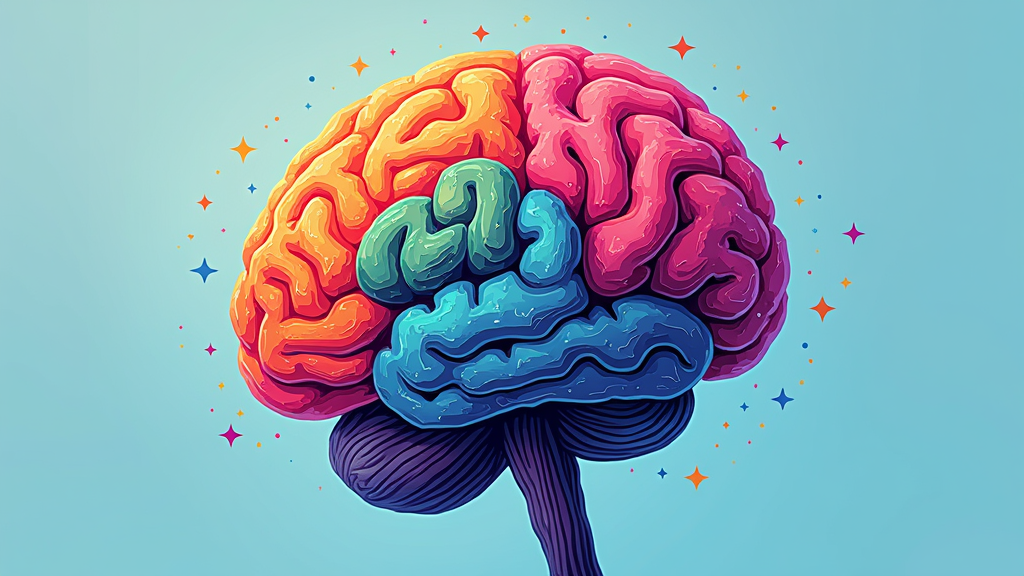Working memory is one of those mental skills I use constantly without even thinking about it. Whether it’s remembering a phone number long enough to dial, keeping track of instructions, or following a recipe step by step, it’s always at work. For older adults, a decline in working memory isn’t just a normal part of aging. Sometimes it becomes more noticeable and starts interfering with daily life. I’ve seen this firsthand with family and friends, so I’ve gathered some of the best strategies to help manage and make the most of working memory as we age.

Understanding Working Memory and Age-Related Changes
Working memory is basically my brain’s notepad. It’s where I hold new information just long enough to use it or transfer it somewhere else, like longterm memory. In older adults, this memory system can start to get a bit overloaded more easily, especially with distractions or when trying to juggle multiple things at once.
A lot of this has to do with changes in the brain’s structure and chemistry over time. This affects how efficiently information is processed. According to the National Institutes of Health, the prefrontal cortex and hippocampus, which are involved in working memory and learning, are particularly sensitive to this aging process.
Even with these changes, a decline isn’t the same for everyone. Staying proactive and knowing how working memory works can really help in managing it better as I get older. Some people may notice only small shifts, while others might see more noticeable changes; the important part is to be aware and take steps that suit each individual’s needs.
Getting Started with Managing Working Memory Challenges
Sometimes I notice simple things slipping through the cracks, like forgetting where I parked or losing track in the middle of a story. These are typical signs that working memory is being tested. I’ve realized that making small adjustments to the way I do things can really pay off.
- Focus on One Task: Multitasking is pretty overrated, especially as I get older. I find it’s much easier to stick to one task at a time, which helps free up mental resources.
- Cut Down Distractions: Keeping my environment calm, like turning off the TV or silencing my phone, lets me give full attention to what’s in front of me.
- Chunking Information: Breaking info into smaller “chunks” (like dividing a phone number into segments) really helps make things more manageable and easier to remember.
Developing these habits early on goes a long way in smoothing out day-to-day tasks that depend on working memory. Sometimes, combining these strategies—such as focusing on one thing while also keeping distractions low—makes an even bigger difference.
Practical Steps and Techniques for Boosting Working Memory
It’s not about trying to restore the memory of my 20s. It’s more about working smarter with what I have now. Here are some things that I’ve found can give a boost to working memory for older adults:
- Use External Aids: I love sticky notes, digital reminders, and calendars. Writing things down or using phone apps takes pressure off my brain to hold everything at once.
- Repeat and Rehearse: When I hear someone’s name, I’ll repeat it aloud or silently a couple of times, which makes it way easier to remember.
- Visualization: Turning information into a mental picture, like imagining a grocery list as items placed around my kitchen, helps stick things in my mind better.
- Organize Information: When faced with a list or steps, I put them in categories or order of importance. Grouping related info together creates a neat mental structure.
- Practice Mindfulness: Staying grounded in the present moment is actually useful for memory. Simple mindfulness or breathing exercises help calm my mind and make info easier to hold onto.
I combine these methods with repetition, because every little bit of practice counts. Over time, these strategies become second nature and make daily tasks more manageable.
What to Consider When Supporting an Older Adult With Working Memory Issues
Supporting a loved one who’s noticing some changes in their working memory means being patient and flexible. Here are a few practical ways I’ve found helpful when working with family:
- Be Patient With Communication: If memory slips happen, avoiding interruptions and giving them a little extra time to find their words can lower stress.
- Encouragement Over Correction: Offering gentle reminders without jumping to correct or criticize helps keep confidence up. No one likes being put on the spot.
- Simplify Instructions: Breaking down information into short, simple steps instead of giving a long set of instructions at once makes it much easier to follow along.
- Create Routines: Setting up regular routines for daily tasks means less memory work is needed on the fly. Everything has its usual place and time, which cuts down on confusion and helps establish consistency.
- Respect Independence: It’s really important to let older adults make choices and stay involved in decisions. Small changes to the environment, like placing keys in an obvious spot, can help without feeling intrusive. This balance of support and independence keeps life feeling fulfilling and empowering.
Working With Medical Professionals
If memory issues feel like they’re getting worse or are affecting everyday safety, reaching out to a doctor is a good idea. Sometimes medications or underlying conditions (like thyroid problems or depression) play a bigger part than I first realize. Having a health checkup can bring peace of mind or open up new options for support. Don’t hesitate to ask questions or discuss concerns; early action can make a difference.
Strategies for Ongoing Maintenance and Improvement
Sticking with memory-friendly habits can make a longterm difference. Just like keeping up my physical health, regular brain exercises pay off. Here’s what I focus on:
- Stay Social: Hanging out with friends, joining clubs, or having conversations gives working memory a workout. Socializing keeps me involved and mentally active, and it makes every day more enjoyable.
- Puzzles and Games: Crossword puzzles, memory card games, or even new hobbies like knitting or playing an instrument challenge my memory in a fun way and offer a sense of accomplishment.
- Keep Physically Active: Light exercise, even regular walks, are linked to better memory according to research from the Alzheimer’s Association. It doesn’t have to be vigorous; just moving consistently is what counts and brings positive effects to my overall health.
- Lifelong Learning: Picking up a new skill like painting or learning to use a new app challenges my brain and builds new connections. It’s never too late to give it a shot or experiment with different creative outlets that spark interest.
Diet and Sleep Play a Part Too
I pay attention to what I eat and how much sleep I get, since a balanced diet (with healthy fats, fruits, and veggies) supports brain health. Good sleep is super important because that’s when memories get sorted and stored. Without proper rest, even the best strategies for working memory fall a bit flat, so keeping up with a regular sleep routine is key.
Common Challenges and How to Work Around Them
- Distractions: The world seems noisier than ever. Setting up a quiet space to do important tasks can really help me focus better.
- Stress and Fatigue: Stress management and regular sleep routines keep my brain running smoothly. When I’m worn out, memory takes a hit, so I try to keep stress in check with relaxation or breathing exercises.
- Medication Side Effects: Some medications mess with memory more than others. If this is an issue, a chat with the doctor helps weigh risks and benefits.
- Technology Overload: Ironically, too many gadgets and notifications can be overwhelming. I streamline technology to use only what’s helpful for reminders, not distraction, and I make sure to set boundaries so the digital world stays manageable.
Dealing With Forgetfulness
It’s common to get frustrated when little lapses add up. Instead of getting caught up in embarrassment, I find it’s way more productive to focus on using tools and strategies to keep things running smoothly. Remember, everyone forgets things from time to time—it’s normal, and developing a positive attitude can make navigating memory changes much easier.
Everyday Takeaways for Managing Working Memory
Building a handful of memory-friendly habits into my daily routine helps keep working memory strong. Whether through simple organization hacks, brainboosting activities, or just allowing myself a little extra time, these habits set the stage for better recall and confidence. Everyone’s adventure with memory is a bit different, so it’s about finding what works best for each person. I always remind myself: adapting is part of the process, and even small steps can lead to more confidence and independence as I get older.

